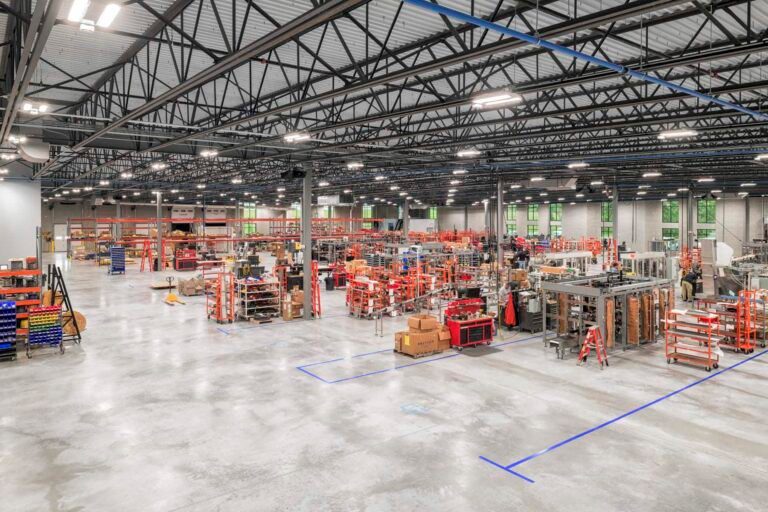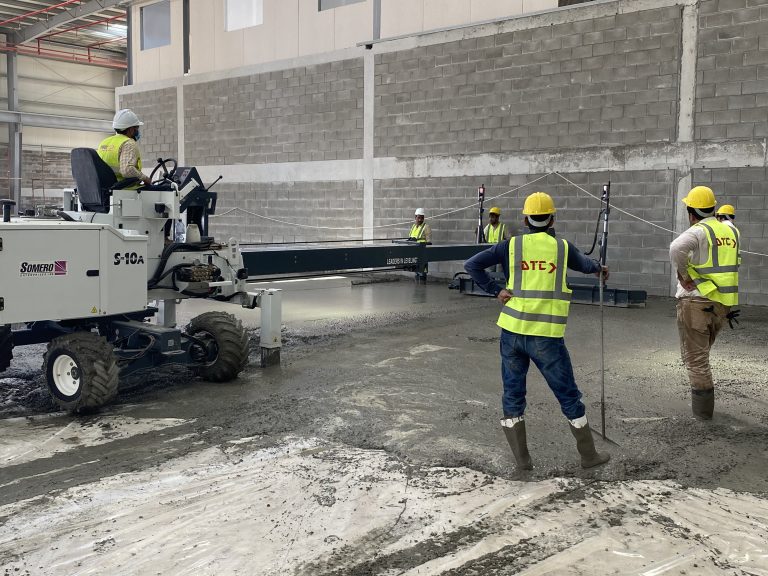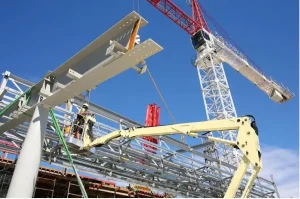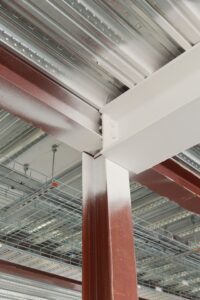EPC company in Saudi Arabia for factory and warehouse construction
EPC Excellence in Saudi Arabia: Building and Planning World-Class Factories and Warehouses
Table of Contents
| Main Topics | Subtopics |
|---|---|
| 1. Introduction: EPC and Industrial Transformation in Saudi Arabia | Overview of EPC model, link to Vision 2030 |
| 2. What is EPC? Understanding the Engineering, Procurement, and Construction Model | EPC process flow, benefits, phases |
| 3. Why EPC Companies Are Crucial for Industrial Development | Integrated project delivery, efficiency, cost control |
| 4. EPC in Factory and Warehouse Construction | From feasibility study to handover |
| 5. Engineering Phase: The Foundation of Success | Design, planning, feasibility, safety, and compliance |
| 6. Procurement Phase: The Backbone of Cost and Quality | Material sourcing, logistics, vendor management |
| 7. Construction Phase: Bringing Industrial Dreams to Life | Execution, site management, safety protocols |
| 8. Workforce and Project Teams in EPC Projects | Engineers, planners, labor, safety officers |
| 9. Smart Technologies and Digital Transformation in EPC | BIM, drones, IoT, AI in construction |
| 10. Sustainability and Green Industrial Design | LEED certifications, renewable energy integration |
| 11. Challenges Facing EPC Companies in Saudi Arabia | Supply chain issues, regulations, labor shortages |
| 12. Success Stories: EPC Firms Driving Saudi Industrial Growth | Examples of leading EPC firms and projects |
| 13. EPC and Vision 2030: Accelerating National Goals | Industrial diversification and localization |
| 14. Cost Optimization and Risk Management in EPC | Budget planning, risk allocation, contingency management |
| 15. Choosing the Right EPC Contractor for Factory & Warehouse Projects | Criteria, experience, references |
| 16. The Role of Safety and Quality Assurance in EPC | ISO standards, inspections, audits |
| 17. The Future of EPC in Saudi Arabia’s Industrial Sector | Smart factories, digital twins, modular EPC |
| 18. Conclusion and Call to Action | Summary, growth opportunities |
| 19. FAQs | EPC model, costs, workforce, benefits, etc. |
1. Introduction: EPC and Industrial Transformation in Saudi Arabia
Saudi Arabia is rapidly becoming a global powerhouse in industrial development and logistics infrastructure. With the Kingdom’s Vision 2030, industrial diversification has taken center stage — creating new opportunities for EPC (Engineering, Procurement, and Construction) companies specializing in factory and warehouse construction.
EPC companies serve as the backbone of this industrial evolution. They handle end-to-end execution — from conceptual design and feasibility studies to full-scale construction and operational handover. This model ensures that investors, developers, and manufacturers receive turnkey solutions tailored to international standards.
In a country witnessing exponential growth in logistics, petrochemical, food, and pharmaceutical manufacturing, EPC firms are instrumental in delivering smart, efficient, and sustainable factories and warehouses that meet global benchmarks.
2. What is EPC? Understanding the Engineering, Procurement, and Construction Model
The EPC model is a comprehensive project delivery system where one entity takes responsibility for design (engineering), material acquisition (procurement), and construction. It ensures speed, accountability, and integration.
EPC Phases:
-
Engineering: Conceptual and detailed design, technical studies, and regulatory approvals.
-
Procurement: Purchasing of materials, equipment, logistics, and vendor coordination.
-
Construction: Execution of civil, structural, mechanical, and electrical works.
Advantages of EPC:
-
Single-point responsibility.
-
Streamlined communication.
-
Reduced project delays and cost overruns.
-
Integrated quality and safety management.
3. Why EPC Companies Are Crucial for Industrial Development
EPC companies deliver value by combining technical expertise, logistical capability, and project management discipline. In Saudi Arabia, where mega industrial zones like Jubail, Yanbu, SPARK, and Sudair are thriving, EPC firms ensure these facilities meet world-class standards.
Their integrated approach guarantees that every phase — from engineering drawings to site execution — aligns with client requirements, environmental standards, and Vision 2030 sustainability goals.
4. EPC in Factory and Warehouse Construction
Factories and warehouses are among the most complex industrial structures. EPC contractors oversee the entire lifecycle:
-
Feasibility and concept design.
-
Soil investigation and geotechnical studies.
-
Detailed engineering (civil, structural, MEP).
-
Procurement of materials and heavy equipment.
-
Construction, testing, and commissioning.
In Saudi Arabia, EPC contractors help industrial investors turn empty desert plots into fully functional manufacturing zones with infrastructure, utilities, and automation systems ready for operation.
5. Engineering Phase: The Foundation of Success
The engineering stage defines a project’s success. EPC firms begin with feasibility studies, assessing site location, utilities, soil conditions, and regulatory constraints.
Key tasks include:
-
Civil, structural, and architectural design.
-
Mechanical, electrical, and plumbing systems (MEP).
-
HVAC design for temperature-controlled warehouses.
-
Safety and fire system planning.
-
Value engineering for cost optimization.
EPC engineers use Building Information Modeling (BIM) and 3D digital twins to visualize structures, detect conflicts, and enhance coordination among disciplines.
6. Procurement Phase: The Backbone of Cost and Quality
Procurement represents up to 60% of total EPC project costs, making it the most critical stage for cost control.
EPC firms in Saudi Arabia establish strategic supplier partnerships for steel, concrete, prefabricated panels, and high-end mechanical systems. They manage:
-
Vendor qualification and bidding.
-
Material tracking and logistics.
-
Customs clearance for imported equipment.
-
Quality inspections and testing before site delivery.
The procurement phase ensures timely delivery, budget adherence, and product integrity.
7. Construction Phase: Bringing Industrial Dreams to Life
Once engineering and procurement are complete, construction begins. EPC companies execute every stage:
-
Site preparation and grading.
-
Foundation and substructure work.
-
Steel erection and concrete casting.
-
Roof and wall cladding.
-
Mechanical installation, electrical systems, and utilities.
EPC contractors maintain strict HSE (Health, Safety, and Environment) protocols and apply ISO 9001 and ISO 45001 standards. Every worker, from crane operator to site engineer, follows a disciplined safety routine.
8. Workforce and Project Teams in EPC Projects
The strength of EPC lies in its people. A large-scale industrial project in Saudi Arabia can involve:
| Role | Responsibility |
|---|---|
| Project Manager | Oversees planning and execution |
| Civil/Structural Engineers | Handle design and materials |
| MEP Engineers | Manage mechanical and electrical systems |
| Procurement Officers | Handle vendor relations |
| Site Supervisors | Manage daily construction tasks |
| Safety Officers | Ensure HSE compliance |
| Skilled Labor | Welding, fabrication, assembly, etc. |
Saudi EPC firms also contribute to Saudization, training local workers and empowering national engineers.
9. Smart Technologies and Digital Transformation in EPC
Saudi EPC companies are embracing Industry 4.0 technologies:
-
Drones for site monitoring.
-
IoT sensors for asset tracking.
-
AI-driven project analytics for schedule optimization.
-
BIM integration for real-time coordination.
These tools reduce project risks, enhance efficiency, and ensure transparency between EPC firms and clients.
10. Sustainability and Green Industrial Design
Modern EPC projects prioritize sustainability:
-
Solar panel integration.
-
Water recycling and efficient HVAC.
-
Energy-efficient lighting systems.
-
LEED-certified materials and construction methods.
In Saudi Arabia’s harsh climate, energy-efficient warehouses reduce cooling costs while promoting environmental responsibility.
11. Challenges Facing EPC Companies in Saudi Arabia
Despite the progress, challenges persist:
-
Global material price fluctuations.
-
Complex regulatory approvals.
-
Skilled labor shortages.
-
Coordination between multiple stakeholders.
However, Saudi EPC firms overcome these with local partnerships, digitalization, and strong project controls.
12. Success Stories: EPC Firms Driving Saudi Industrial Growth
Saudi Arabia hosts several leading EPC contractors shaping the nation’s industrial identity. Companies like DTC (Dorar Tammam Contracting), NESMA, and El-Seif deliver complex factories and logistics centers across Jubail, Dammam, and Riyadh.
Their track records include:
-
Pharmaceutical and food processing plants.
-
Warehouses for logistics giants.
-
Industrial utilities and infrastructure projects.
These EPC firms contribute directly to the realization of Vision 2030’s industrial diversification pillar.
13. EPC and Vision 2030: Accelerating National Goals
Vision 2030 emphasizes local manufacturing, exports, and logistics. EPC companies are vital to this strategy — they deliver industrial zones, factories, and smart warehouses that support new industries.
They also help attract foreign investment, as global companies rely on Saudi EPC partners to execute projects quickly and to international quality standards.
14. Cost Optimization and Risk Management in EPC
Cost and risk control are the cornerstones of EPC success:
-
Fixed-price contracts protect clients from cost overruns.
-
Contingency reserves mitigate unforeseen risks.
-
Value engineering optimizes resources without sacrificing quality.
-
Transparent reporting builds client trust.
Saudi EPC companies often employ Earned Value Management (EVM) systems to track performance.
15. Choosing the Right EPC Contractor for Factory & Warehouse Projects
When selecting an EPC firm, clients should evaluate:
-
Proven track record in industrial projects.
-
In-house engineering and procurement capabilities.
-
Financial stability.
-
Safety and quality certifications.
-
Transparency and communication.
Working with a reputable EPC company ensures on-time, on-budget delivery with high safety and performance standards.
16. The Role of Safety and Quality Assurance in EPC
Every EPC project in Saudi Arabia must comply with Saudi Building Codes, OSHA, and ISO standards. Regular inspections, safety audits, and third-party quality tests are mandatory.
EPC firms implement zero-incident policies, providing ongoing training, PPE enforcement, and safety monitoring on all project sites.
17. The Future of EPC in Saudi Arabia’s Industrial Sector
The future is digital and sustainable. EPC companies are transitioning to:
-
Modular construction for faster delivery.
-
Digital twins for lifecycle management.
-
Smart factories with integrated automation.
-
Renewable energy integration into industrial systems.
Saudi Arabia’s commitment to clean energy and green industries will further expand the EPC sector’s role in national development.
18. Conclusion and Call to Action
EPC companies are the builders of progress — transforming Saudi Arabia’s industrial vision into tangible infrastructure. Through innovation, technical mastery, and sustainability, they deliver factories and warehouses that redefine productivity.
Investors seeking to build in the Kingdom should partner with experienced EPC contractors who understand local regulations, global standards, and the unique challenges of industrial construction.
By combining engineering excellence, procurement efficiency, and construction precision, EPC companies will continue powering the Kingdom’s industrial future.
19. Frequently Asked Questions (FAQ)
Q1: What does EPC stand for?
A: EPC stands for Engineering, Procurement, and Construction — a project delivery model for turnkey industrial projects.
Q2: Why are EPC firms important for factories and warehouses?
A: They manage all project stages, ensuring speed, quality, and cost efficiency.
Q3: How long does a typical EPC factory project take?
A: Depending on scale, from 12 to 30 months, including engineering and commissioning.
Q4: What technologies are used by EPC firms?
A: BIM, drones, IoT, and AI are common for design, tracking, and monitoring.
Q5: How does EPC support Vision 2030?
A: By enabling industrial diversification, localization, and sustainable infrastructure growth.
Q6: What is the difference between EPC and design-build?
A: EPC includes procurement and is often used for large-scale, complex industrial projects.
🌐 Web Search Results (October 15, 2025)
-
نشرة إصدار شركة أميانتيت العربية السعودية
Detailed corporate structure and operations insights related to Saudi industrial companies, showing the model of large-scale EPC involvement. -
كود تخطيط وتصميم الموانئ والمنشآت الصناعية – الهيئة الملكية للبحر الأحمر
Comprehensive guide on planning and design code standards relevant to EPC projects in Saudi Arabia. -
تقرير حالة المدن السعودية – الأمم المتحدة
An in-depth report discussing urban and industrial development trends across Saudi cities under Vision 2030.














